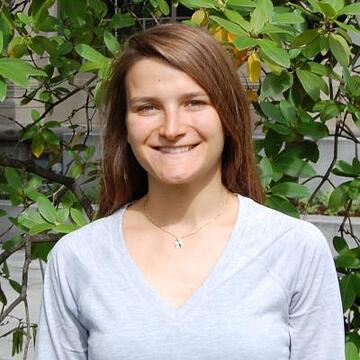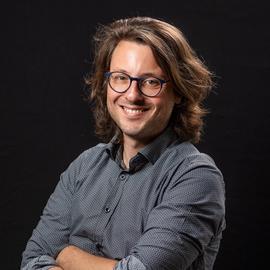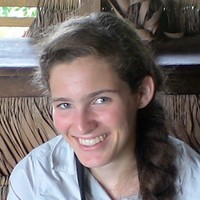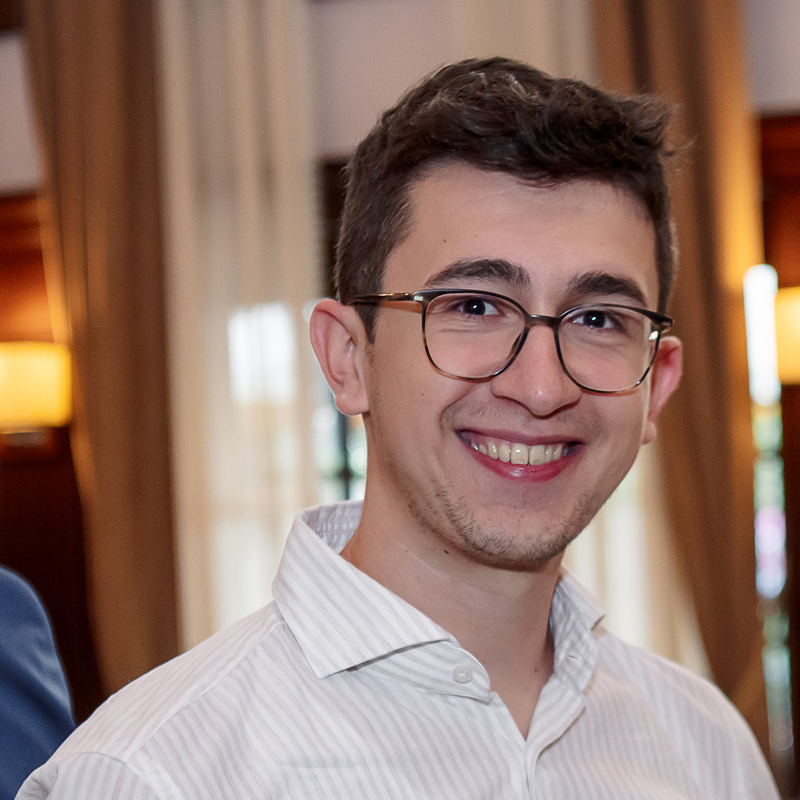Program
The bridge’s program will span activities from traditional tutorials and invited vision talks, to real-world application sessions and contributed talks based on submitted papers. In addition there will be an interactive panel and breakout discussions.
The tentative program can be found below and information on confirmed invited speakers is provided further down on this page. The program at one glance is as follows:
All times are in Pacific Standard Time (PST, GMT-8)
Day 1 (February 20th)
- 9:00: Bridge kickoff - Organizers (15 min)
- 9:15: Tutorial part 1 - continual learning: Martin Mundt - Technical University of Darmstadt & hessian.AI (75 min)
- 10:30: Coffee break - coffee provided by the conference (30 min)
- 11:00: Tutorial part 2 - causality: Matej Zečević - Technical University of Darmstadt (75 min)
- Link to GitHub Repository to tag along the Causality Code Tutorial: https://github.com/ContinualCausality/Causality-Tutorial
- 12:15: Lunch break - on your own, no lunch provided (95 min)
- 13:50: Invited vision talks on the bridge’s interface, 3 x 40 min + 10 minute Q&A each (150 min) + 30 min coffee break in between
- 13:50-14:40: Martha White, University of Alberta & Alberta Machine Intelligence Institute (Amii)
- “Partial Models in Online Reinforcement Learning: Can Causality Help?”
- 14:40-15:30: Jorge Mendez-Mendez, Massachusetts Institute of Technology (MIT)
- 15:30-16:00: Coffee break - coffee provided by the conference
- 16:00-16:50: Elina Robeva, University of British Columbia (UBC)
- “Learning causal models via algebraic constraints”
- 13:50-14:40: Martha White, University of Alberta & Alberta Machine Intelligence Institute (Amii)
- 16:50: Panel discussion - Invited day 1 and 2 speakers (70 min)
Day 2 (February 21st)
- 9:10: Short opening (5 min)
- 9:15: Continual Causality Applications - Rebecca Herman, German Aerospace Center (DLR) (75 min)
- 10:30 Coffee break (30 min)
- 11:00: Continual Causality Applications - Efstratios Gavves, University of Amsterdam (UVA) (75 min)
- 12:15: Lunch break (105 min)
- 14:00: Invited contributed talks, 4 x 20 mins + Q/A (90min)
- Identification of Causal Structure with Latent Variables Based on Higher Order Cumulants - Wei Chen, Zhiyi Huang, Ruichu Cai, Zhifeng Hao, Kun Zhang - AAAI-24 main conference paper
- Neural Causal Abstractions - Kevin Xia, Elias Bareinboim - AAAI-24 main conference paper
- An Information Theoretic Framework for Continual Learning of Causal Networks - Osman Ali Mian, Sarah Mameche - Continual Causality Bridge Oral
- Causality in Flux: Continual Adaptation of Causal Knowledge via Evidence Matching - Florian Peter Busch, Jonas Seng, Kristian Kersting - Continual Causality Bridge Oral
- 15:30: Coffee break (30 min)
- 16:00: Interactive community discussion on future challenges in smaller breakout groups (60 min)
- 17:00: Summary of breakour groups (30 mins)
- 17:30: Concluding remarks
Invited Speakers
 Martha White - University of Alberta and Alberta Machine Intelligence Institute (Amii)
Martha White - University of Alberta and Alberta Machine Intelligence Institute (Amii)
Martha White is an Associate Professor of Computing Science at the University of Alberta and a PI of Amii – the Alberta Machine Intelligence Institute – which is one of the top machine learning centres in the world. She holds a Canada CIFAR AI Chair and received IEEE’s “AIs 10 to Watch: The Future of AI” award in 2020. She has authored more than 50 papers in top journals and conferences. Martha is an associate editor for TPAMI, and has served as co-program chair for ICLR and area chair for many conferences in AI and ML, including ICML, NeurIPS, AAAI and IJCAI. Her research focus is on developing algorithms for agents continually learning on streams of data, with an emphasis on representation learning and reinforcement learning.
 Jorge Mendez-Mendez - Massachusetts Institute of Technology (MIT)
Jorge Mendez-Mendez - Massachusetts Institute of Technology (MIT)
Jorge Mendez-Mendez is a postdoctoral fellow at MIT CSAIL. He received his Ph.D. (2022) and M.S.E. (2018) from the GRASP Lab at the University of Pennsylvania, and his Bachelor’s degree (2016) in Electronics Engineering from Universidad Simon Bolivar in Venezuela. His research focuses on creating versatile, intelligent, embodied agents that accumulate knowledge over their lifetimes, leveraging techniques from transfer and multitask learning, modularity and compositionality, reinforcement learning, and task and motion planning. His work has been recognized with an MIT-IBM Distinguished Postdoctoral Fellowship, a third place prize of the Two Sigma Ph.D. Diversity Fellowship, and a Best Paper Award in the Lifelong Machine Learning Workshop (ICML).
 Elina Robeva - University of British Columbia (UBC)
Elina Robeva - University of British Columbia (UBC)
Elina Robeva is an Assistant Professor at the Department of Mathematics in the University of British Columbia. Her research lies at the intersection of mathematical statistics, machine learning, combinatorics, multilinear algebra, and applied algebraic geometry. She particularly enjoys discovering mathematical structure which is inherently responsible for the successful solution to a statistical problem. Most recently she has been working on the theory of linear causal models, structured tensor decompositions, shape-constrained density estimation, and super-resolution imaging. Prior to joining UBC, she spent three years as a Statistics Instructor and an NSF Postdoctoral Fellow in the Department of Mathematics and the Institute for Data, Systems, and Society at MIT. She received her PhD (2016) in mathematics from UC Berkeley under the supervision of Bernd Sturmfels. Her thesis won the Bernard Friedman Memorial prize in applied mathematics.
 Efstratios Gavves - University of Amsterdam (UVA)
Efstratios Gavves - University of Amsterdam (UVA)
Efstratios Gavves is an Associate Professor with the University of Amsterdam in the Netherlands and Scientific Director of the QUVA Deep Vision Lab. He is a recipient of the prestigious ERC Career Starting Grant 2020 to research on the Computational Learning of Temporality for spatiotemporal sequences. Also, he is a co-founder of Ellogon.AI, a University spinoff and in collaboration with the Dutch Cancer Institute (NKI), with the mission of using AI for pathology and genomics. His research focuses on Causal Computer Vision, specifically how we can achieve Embodied General Intelligence and eventually Cyberphysical AI.
 Rebecca Herman - German Aerospace Center (DLR)
Rebecca Herman - German Aerospace Center (DLR)
Rebecca Herman is a postdoctoral research scientist at the German Aerospace Center (DLR). She studied climate science and monsoon rainfall during her PhD, and her search for meaningful attribution techniques in the face of limited observational and experimental data led her to the study of causal inference. She is now working on the CausalEarth project with Jakob Runge, focusing on algorithm improvement and effective use of causal inference techniques on time-series climate data.
Tutorials
 Martin Mundt - Technical University of Darmstadt, hessian.AI
Martin Mundt - Technical University of Darmstadt, hessian.AI
Martin Mundt leads the Open World Lifelong Learning lab as an independent research group leader at the Hessian Center for Artificial Intelligence (hessian.AI) and visiting professor at the Technical University of Darmstadt (TU Darmstadt). He is also a board member of directors at the non-profit organization ContinualAI, organizer at Queer in AI, and currently serves as diversity and inclusion chair for AAAI-24 and review process chair for CoLLAs-24. Previously, he has received an M.Sc. in physics (2015) and obtained a PhD in computer science (2021) from Goethe University with distinction and thesis award. The main vision behind Martin’s research is to enable adaptive, robust and sustainable intelligent systems. These lifelong learners are able to behave robustly in novel situations and efficiently include novel experiences, thus providing a sustainable foundation to AI systems for and with humans.
 Matej Zečević - Technical University of Darmstadt
Matej Zečević - Technical University of Darmstadt
Matej Zečević is a Ph.D. candidate at the AI/ML lab at TU Darmstadt working with Prof. Kristian Kersting. His research is centered around the integration of causality with AI/ML. As of 2023, Matej has been lecturing causality at university during regular terms, but also in the form of a one-week crash course at the European Summer School for AI (ESSAI). Further, he has held several talks and coding sessions on causality at the International Summer School on Data Science (SDSS) 2022, the Eastern European Machine Learning Summer School (EEML) 2022, the Serbian Machine Learning Workshop (SMLW) 2022, and various reading/discussion groups such as the Chinese Causal Science Community (CCCS) or Learning on Graphs Reading Group (LoGaG). Additionally, he was the core organizer at the NeurIPS 2022 Workshop on neuro Causal and Symbolic AI (nCSI), while also organizing this year’s AAAI 2024 Workshop on Large Language Models and Reasoning (LLM-CP). In 2022, Matej also founded the weekly, online Causality Discussion Group (CDG) with over 600 members as of today.